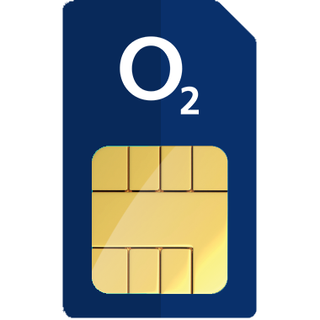Those in the UK haven’t had to worry about paying extra to use their phone in the European Union since 2017, but this might change in 2021 following Brexit.
The transition period agreed between the UK and EU comes to an end at 11pm on 31 December, 2020. This could mean mobile networks are entitled to charge you more to make calls, send texts or use the internet on the continent.
The two sides are still in talks to agree on how their new relationship will work, so we can’t say for sure. But deal or no deal, here’s what we do know about the future of post-Brexit roaming.
What are roaming charges?
Roaming charges refer to an extra cost you pay on top of your standard phone contract minutes, SMS and data allowance when using your phone abroad. Holidaymakers racking up thousands of pounds in bills used to be a regular feature of news headlines.
Since 2017, the EU’s ‘Roam Like at Home’ initiative banned mobile networks from charging for roaming within member states. This applied equally to Brits abroad and EU citizens in the UK.
What has UK Government said will happen after Brexit?
The Government released guidance on 16 July 2020 saying: “From 1 January 2021, the guarantee of free mobile phone roaming throughout the EU, Iceland, Liechtenstein and Norway will end.
“Check with your phone operator to find out about any roaming charges you might get from 1 January 2021.”
While the Government has left it up to networks to decide if they’ll reintroduce charges, it has passed a law capping costs at £45 per month. But that doesn’t limit the rate you’ll be charged at, just the total amount you can be billed automatically. So you could find that you reach the limit pretty quick.
After that, the law says networks have to ask you to opt-in to spend any more. Your network is also obliged to alert you when you’re at 80% data usage and again at 100%, so you won’t just run out unexpectedly.
If you’re in Northern Ireland, the networks have also been told to take “reasonable steps” to make sure you’re not accidentally charged if your phone picks up a mobile signal from the Republic of Ireland if you’re near the border.
What are ‘big four’ UK mobile networks doing?
Just because the phone networks will be allowed to reintroduce roaming charges, doesn’t mean they will. When we reached out to the UK’s major mobile operators, they said the below.
EE
“Our customers enjoy inclusive roaming in Europe and beyond, and we don’t have any plans to change this based on the Brexit outcome. So our customers going on holiday and travelling in the EU will continue to enjoy inclusive roaming.”
O2
“We’re committed to providing our customers with great connectivity and value when they travel outside the UK. We currently have no plans to change our roaming services across Europe, maintaining our ‘Roam Like At Home’ arrangements.”
Vodafone
“We have no plans to reintroduce roaming charges.”
Three
“Three is the global leader in international roaming and already offers roaming at no extra cost for its customers in over 70 destinations including the US, Australia and New Zealand. We will retain this great customer benefit regardless of Brexit negotiations allowing our customers to continue using their phones when they travel within the EU.”
But that doesn’t mean they won’t reintroduce roaming charges eventually. If the UK and EU don’t reach a deal, this will largely depend on whether the networks can strike reciprocal agreements themselves with networks in individual EU countries.
Whether that’s possible, remains to be seen. Some European networks might see value in charging UK operators a fortune to connect calls, given the sheer volume of UK travelers to the continent – at least when we’re not in the grip of a global pandemic.
These added costs could make free roaming unsustainable for UK operators.
But given the high number of EU citizens that also travel to the UK – again, pre-pandemic – other European networks will still want to be able to offer roaming-free travel for their customers too.
Fortunately, every European country has more than one network, so UK operators will have a choice of companies to work with. And many British networks are part of larger multinationals. For instance, Vodafone has a large European presence in its own right, while O2 is owned by Telefónica, one of the largest telecoms in the world. So it’ll be in their mutual interest to keep roaming costs down.
What about the other mobile networks?
While the major mobile operators have millions of customers, small networks have less leverage to make deals with European networks. Though VOXI, GiffGaff and SMARTLY, as subsidiaries of Vodafone, O2 and Three respectively, are in a better position. Those that we spoke to said the below.
Virgin Mobile
“We currently have no plans to change our Roam Like Home offering post-Brexit. Virgin Media mobile customers can continue to enjoy their inclusive data, minutes and texts while abroad in 43 European destinations. Should we need to make any changes to our roaming services, we’ll let our customers know in advance.”
Tesco Mobile
“Tesco Mobile is committed to giving our customers the very best value and service wherever they use their mobile. There are currently no plans to change our Home From Home roaming at no extra cost.”
Plusnet Mobile
“At Plusnet Mobile, we believe in providing our customers with great value products, like inclusive roaming in over 50 European destinations, and we don’t have any plans to change this based on the Brexit outcome.”
TechRadar has also contacted GiffGaff, iD Mobile, VOXI, SMARTY and Sky Mobile. We’ve yet to hear back from these networks, but we’ll update this piece in future when we hear back from each.
Will an EU trade deal make a difference?
This could make a huge difference. The two sides might agree to remain aligned on roaming as it’s in the mutual interest of both their citizens. Or at the very least they could agree to cap roaming charges at a lower rate.
How will EU nationals travelling to the UK be affected?
In its guidance from 5 March 2019, the UK Government advice to visitors from the EU, as well as Iceland, Liechtenstein, Norway and Switzerland: “You’ll pay the same for calls, texts and mobile data in the UK and the EU if you have a SIM card issued by a mobile phone network from an EU or EEA country.”
So, in short, there will be no roaming charges to pay.
What will happen to roaming charges beyond the EU?
The UK doesn’t have any agreements like ‘Roam Like at Home’ with any other countries. So mobile networks already have business deals with foreign partners and shouldn’t need to negotiate these due to Brexit. So Brits don’t need to worry about international roaming getting more expensive worldwide.
However, the UK Government could seek to abolish roaming as part of any new trade deals it does with the rest of the world. In fact, consumer group Which? has called on them to do exactly that.
It says deals with the United States, Australia and New Zealand could mean big savings for holidaymakers. But, at time of writing, the Government hasn’t done this in the 31 trade deals it’s already agreed with non-EU countries like Japan and Canada. So we’ll have to wait and see what happens in the future.
How else can you avoid roaming charges when abroad?
The good news is that these days you can travel without having to rely on your phone signal alone. Wi-Fi hotspots are fast, reliable and everywhere. And they’re easy to find thanks to WiFi Map. Just make sure you turn roaming off in your settings. Not making calls or using the internet isn’t enough – as your phone could still be using data in the background.
If you need a mobile connection that’s… you know, mobile and not tethered to a particular place, you can buy local SIM cards in some countries. But your phone will have to be unlocked and you might still pay extra to call the UK.
Long term, you could think about switching networks. Three’s ‘Go Roam’ scheme is one of the best for globetrotters, winning U-Switch’s Best Network for International Roaming 2020. It’s Essential plan customers use their UK call, text and allowances for no extra cost throughout Europe.
While its Advanced contract offers the same deal in up to 71 destinations – including the EU, US and Hong Kong – for around £3 or £4 more a month.







Comments are closed.